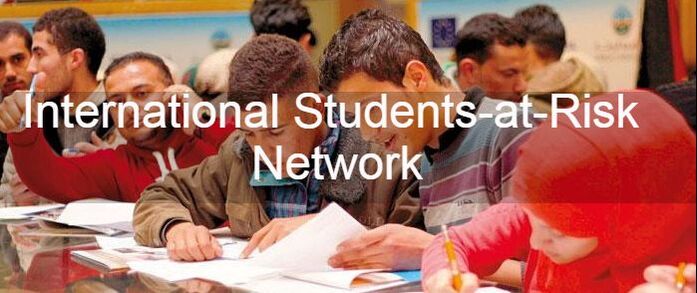Home/International Students-at-Risk Network
|
With new global records of displaced people set every year, foreign aid falling and an expected surge of climate refugees on the horizon, forced migration shall be heightened in the years to come. In response to the world's global education emergencies, the University for Sustainability is developing an International Students-at-Risk Network (ISRN) enabling conflict- and violence-displaced and refugee students to connect with educational opportunities so they may continue formal post-graduate studies with member institutes of the University for Sustainability. For the world is witness to an unprecedented level of displacement with nearly 20 people being displaced every minute. Among them hundreds of thousands of post-graduate students seeking to reconnect to their studies. Increased collaboration among public and private sector stakeholders is needed to respond to higher education emergencies and ensure that students displaced by crises, violence, and armed conflict obtain the education they deserve to lead independent and self-determined lives. Sustainable Development Goal 4 ensures inclusive and equitable quality education and promote lifelong learning opportunities for all. This will not be achieved if refugee education is not prioritized. According to the United Nations High Commissioner for Refugees, (UNHCR) of the world’s more than 65 million people displaced by war, conflict and violence attend university and fewer than that to post-graduate programmes. The International Students-at-Risk Network (ISRN) gives at-risk and conflict and violence-displaced students a chance for post-graduate education abroad. Post-graduate education is strongly linked to increased opportunity, strengthened economic development, improved public health, and safer communities. It offers young people hope and a path towards a sustainable and independent future. Governments, NGOs, foundations and volunteers are undertaking great efforts to assist displaced and refugee students but are often unaware of parallel or similar initiatives in the field. Students find out about scholarships and other opportunities through coincidence or word of mouth and often lack the resources and knowledge to navigate the application processes. To bridge this gap, ISRN is creating a platform that offers a database with post-graduate opportunities and additional resources for students. ISRN engages with the University for Sustainability's member institutes to build capacity within the ISRN and create new opportunities for collaboration among the University for Sustainability's participating member institutes. By 2025, the ISRN shall help ensure that 10 per cent of refugees have access to tertiary learning. This shall be achieved by:
In order to be eligible, a candidate must:
|


